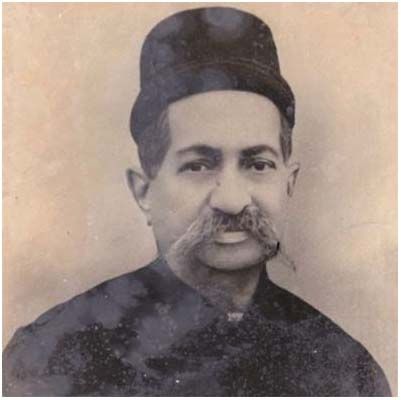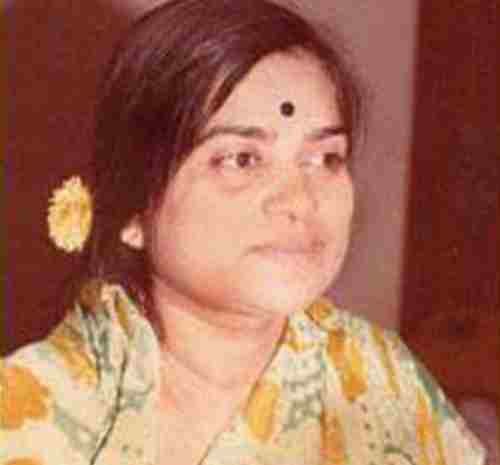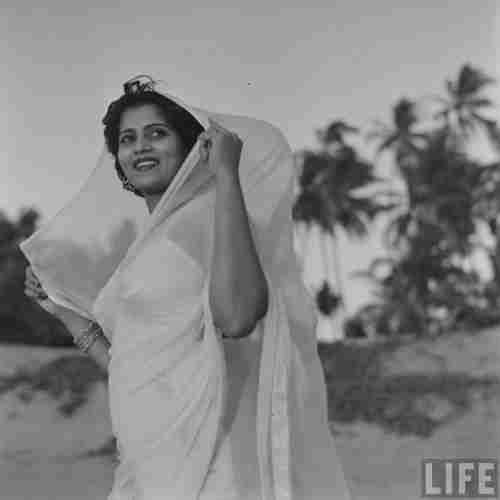Jamshedji Framji Madan (J F Madan)

Subscribe to read full article
This section is for paid subscribers only. Our subscription is only $37/- for one full year.
You get unlimited access to all paid section and features on the website with this subscription.
Not ready for a full subscription?
You can access this article for $2 , and have it saved to your account for one year.
- Born: 27 April 1856 (Bombay, Bombay presidency, British India)
- Died: 28 June 1923 (Calcutta, Bengal presidency, British India)
- Primary Cinema: Silent
Considered one of the founding fathers of Indian cinema, remarkable film pioneer Jamshedji Framji Madan was a Parsi businessman and film magnate to whom credit goes for floating India’s first corporate film production company. A legendary producer and exhibitor of films, he went on to build a network of cinema halls, cinema tents, and film distribution network across India, also producing more than 100 silent and talkie films in the Indian film industry’s early years. His company Madan Theatres, operating as the Elphinstone Bioscope Company at the start, grew to become the largest filmmaker, distributor and theatre business in the country. Credited with having brought the early film business to Calcutta, Madan Theatres controlled half of India’s box office income and is said to have owned or controlled 127 theatres, at its peak. Among the firsts that Madan achieved in Indian cinema, include: the Elphinstone Picture Palace in Calcutta which was India’s first purpose-built cinema, the first Bengali feature, the first Bengali talkie, the first feature film set in Calcutta, the first cinema equipped for sound (Elphinstone Picture Palace), the first talkie exhibited in India, the first re-make in India cinema (Satyawadi Raja Harishchandra, 1917), and the first cinema chain.
He was born in Navsari, Gujarat, on 27 April 1856 into a Parsi family. At a young age, he was compelled to seek employment for himself as his father had lost large sums of money in a scheme to reclaim land between the seven islands of Bombay. At a young age, he found work as a prop boy in theatre; and then as an actor in Parsi theatre, as part of the Elphinstone Dramatic Club. The failure of his father’s business saw him move to Calcutta at the age of 27, where he started wholesale and retail businesses in alcohol and provisions. In 1875, he entered into a trading business as a partner with Dr N N Parekh, Mr Sakloth and Mr D M Wacha. In 1885, he set up his own business as a wine merchant and general provisions supplier under the banner of J F Madan. It would become a very substantial business securing lucrative contracts with the British Indian Army, particularly in the north of the country.
At heart, his love for theatre endured and Madan would shovel his profits earned as a highly successful businessman, into the production of Parsi theatre, which was extremely popular at the time. He would invest in the construction of dance and theatre halls and playhouses, and even bought the Corinthian Theatre, Calcutta’s legendary theatre at the time.
As the new medium of entertainment– films—reached Indian shores from the West and foreign films started to be exhibited in the country from the late 1800s, Madan’s imagination was quickly captured. It led to him establishing the Elphinstone Bioscope Company in 1902 in Calcutta to exhibit foreign films. It would be the predecessor to Madan Theatres.
With Dadasaheb Phalke making the country’s first indigenously made feature film, Raja Harishchandra in 1913, Madan also stepped into the production and exhibition of silent films. These include Jyotish Sarkar’s film the Great Bengal Partition Movement: Meeting & Procession. In 1917, Madan produced Satyavadi Raja Harishchandra. A shorter version of Phalke’s landmark film, it would be the first-ever feature film shot in Calcutta.
Madan’s pioneering spirit saw him acquire the exclusive rights to Pathé Frères films in the subcontinent. This provided a massive boost to his film business. There was more to come… After the end of World War I, he launched India’s first corporate filmmaking company. He converted his Parsi theatre, mimicry production and silent filmmaking operations into a joint stock company. On 27 September 1919, Madan Theatres Limited was incorporated and registered with the registrar of companies in Calcutta.
Such was the company’s success that, at its nadir, before the advent of the talkies in India which came in 1931, Madan Theatres held control over 127 cinema halls in India. Nearly half the box office collections in the 1920s and 1930s were under the control of its owner Madan. Towards the end of the silent era of Indian cinema, Madan Theatres also pioneered in producing non-mythological and social films. His company also produced, distributed and exhibited films, hiring a number of foreign directors and imported many foreign films.
Under Madan’s stewardship, the company accomplished several milestones and first in Indian cinema. These include India’s first purpose-built cinema hall, named the Elphinstone Picture Palace in Calcutta (which was recently demolished as Chaplin Theatre); the first Bengali feature film - Satyavadi Raja Harishchandra (1917) and also the first feature film shot in Calcutta; the first Bengali talkie, Jamai Shashthi (1931) which released in the same year as Alam Ara, India’s first-ever talkie directed and produced by Ardeshir Irani; and the first exhibitor of the talkies in India. Madan Theatres Ltd set a world record for the largest number of songs in a single film with its Indra Sabha, which had 71 songs. It owned a number of theatres including the Electric Theatre (now Regal Cinema), Grand Opera House (now Globe Cinema) and Crown Cinema (now Uttara Cinema) in Calcutta which are still standing. The company was also the first to film a sporting event in India, when in 1911 it filmed the historic IFA Shield football final in Calcutta, which saw Mohun Bagan Football Club defeat an all-English football team, to win the IFA Shield for the first time in India.
In 1923, Madan OBE was promoted to CBE in Queen’s birthday honours.
At the summit of his success, Madan died on 30 June 1923. He was 67. His funeral took place at Beliaghatta. Over 5,000 telegrams expressing sympathy including notes from the Viceroy and Governor-General came in. As a mark of respect, all cinemas and theatres operated by the company were closed for 24 hours. B J and J J Madan took over management of his business interests and were the executors of his will along with F J Madan.
The film empire Madan built suffered a huge loss six years later, as a result of the Wall Street Crash of 1929. Soon, by the mid-1930s, the theatre network and most of the film business created by Madan was finished. It lost the Royal Opera House in Bombay after the expiry of its lease in 1932. However, it was able to retain Regal cinema in Colaba, Bombay, in its portfolio. After being embroiled in several court cases, Madan Theatres produced its last film and then shut down in 1937. Madan Street in central Kolkata still honours Madan’s philanthropy, a marker of his considerable donations to Calcutta’s poor and the Parsi community. A few topical films also survive and the NFAI have successfully recovered parts of two Madan-produced feature films. His contribution to Indian cinema has been immortalised in a painting by noted painter Gaganendranath Tagore. ‘Madan Theatre by Night’ is currently in the National Gallery of Modern Art, New Delhi.
While Madan has been largely forgotten by Indian cinema and even by the city of Calcutta, to which he owed much of his success, his enormous contribution as a pioneer of India’s film industry remains undeniable.
On the personal front, his son Burjor Jamshedji Madan (born 1890), was a company director for the business in later life. His other son Jehangir Jamshedji Madan (born 1896) would later manage the company and direct 22 of its films. Madan is great grandfather of the noted American actor Erick Avari.







.jpg)



